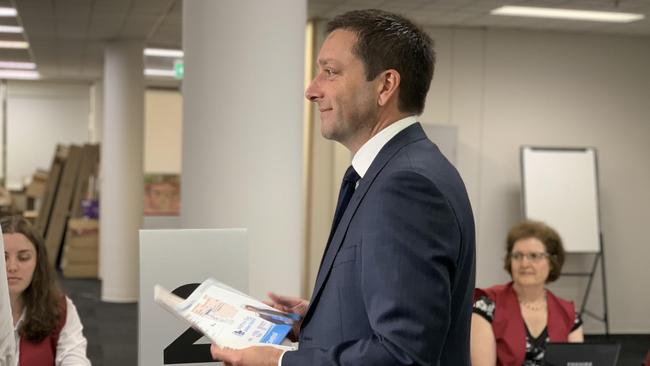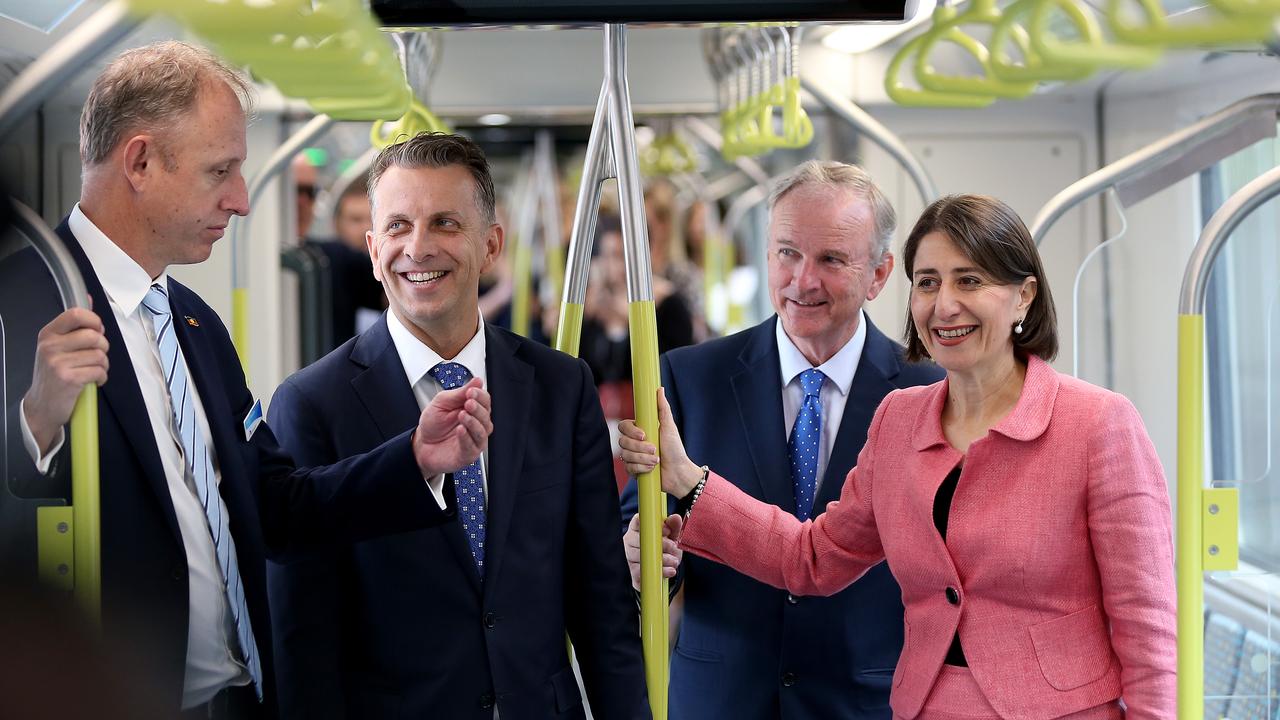Victorian election: Liberals push GPS tracking of radicalised extremists
The Victorian Coalition wants to track radicalised extremists using GPS and ban them from the Melbourne CBD.

Radicalised extremists could be fitted with GPS tracking devices and banned from Melbourne’s CBD under laws proposed by the Victorian Coalition.
Opposition Leader Matthew Guy’s November 24 election promise yesterday follows Friday’s terror attack, which resulted in the death of restaurateur Sisto Malaspina and the injury of two other members of the public.
Hassan Khalif Shire Ali, a Somali-born Australian known to ASIO and the AFP, set a gas bottle-laden ute on fire and went on a stabbing frenzy in Bourke Street before being fatally shot by police.
The Coalition’s $89.5 million four-point plan would involve the creation of terrorism restriction orders and the training of 100 existing frontline police officers in counter-terrorism operations.
It would also see the addition of 50 analysts and surveillance staff at the Victorian Fixated Threat Assessment Centre and Counter Terrorism Command, and a boost to Victoria Police Melbourne CBD patrols, with eight more four-person teams added.
“We can all see from the tragic events of last Friday how every second counted,” Mr Guy said.
“To have more police, visible police, patrol our CBD would be immensely important and provide a much greater level of security and indeed protection to Victorians going about their daily lives.
“I will never accept that violent extremism is just part of daily life in Victoria. I will never accept that an increasing crime rate is something we should accept as a city with a growing population.
“Keeping Victorians safe will be the primary goal, the primary objective of a government I lead.”
The Coalition’s counter-terror spokesman, Robert Clark, said the Harper-Lay review, established in the wake of the 2017 Brighton terror attack, had recommended the restriction orders, which would be sought by police and enforced by a court. ASIO could also recommend orders be sought.
“It’s clear after last Friday’s terrorist attack Shire Ali would have been a person who would have qualified for the making of such an order,” Mr Clark said.
“At the moment the existing orders are in essence only available when there is evidence someone is planning to engage in a terrorist attack or when there has been a terrorist attack, and in the aftermath of that attack.
“What Victoria Police have been calling for and what the Harper-Lay review recommended was the capacity for an order that would impose restrictions on those who … were showing evidence of radicalisation towards violence, but had not reached the threshold with existing orders.”
Restriction orders would involve the wearing of GPS tracking devices, curfews, restrictions on movement and requirements to take part in anti-radicalisation or drug and alcohol programs.
Mr Guy cited Premier Daniel Andrews’s declaration in 2015 that Victorians “have to accept violent extremism is part of a contemporary Australia”, accusing him of raising a “white flag” to extremism. Mr Andrews dismissed Mr Guy’s attack: “There was no counter-terrorism command when I was sworn in as Premier and it’s now a very significant part of Victoria Police’s work.
“We face very real threats and (we’re) making sure police have the resources, the recruits and the … statute book they need.”


